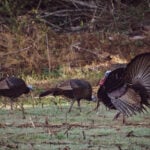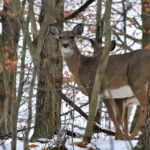LAST UPDATED: June 22nd, 2021
Hunters who are constantly scratching their heads at misfortune rarely stop, identify what went wrong and then avoid making the same mistakes again in the future.
Instead, they continue to make those mistakes season after season and don’t improve their success rates much, if at all. If you pay attention, you can learn something every time you hunt.
You might not understand why a big buck stopped 3 yards shy of your shooting lane, or why the buck that was regularly on your trail camera during daylight didn’t show before dark while you were on stand. But, you can often identify mistakes you make and avert them in the future, thus boosting your success rate.
Below in no particular order are six common mistakes that bowhunters make. The good thing is that all are easily avoidable. Let’s run through the list together.
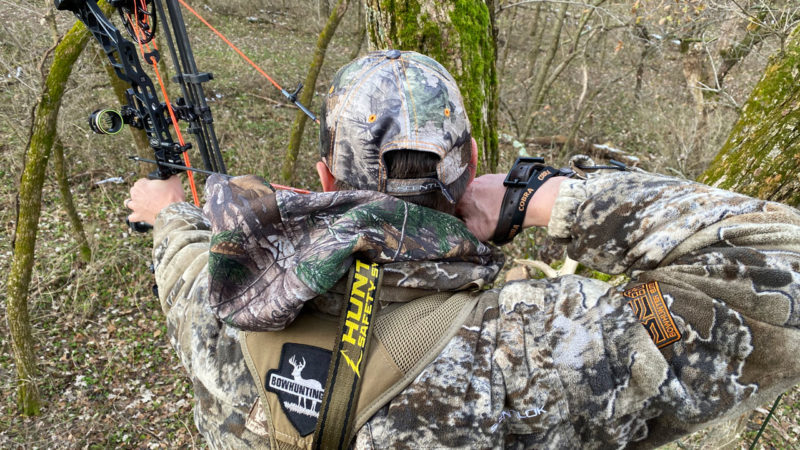
1. Hanging Stands Too Low on Wide-Open Skylines
I once was hunting 30 feet up a maple on a public parcel in central Wisconsin when a young 5-pointer meandered into view.
Slowly, he ambled about, vacuuming acorns from the fallen late-October leaves. I didn’t move a muscle, as I had no intentions of harvesting the buck.
At once, his head jolted erect, his eyes burning holes through my camouflaged profile. I remained still, not wanting to spook the buck and disrupt the remainder of the afternoon’s activities.
I assumed his youngness would betray him and he’d return to feeding, but he eventually bolted. The wind hadn’t been poor, so why he suddenly spotted me is a still-looming question.
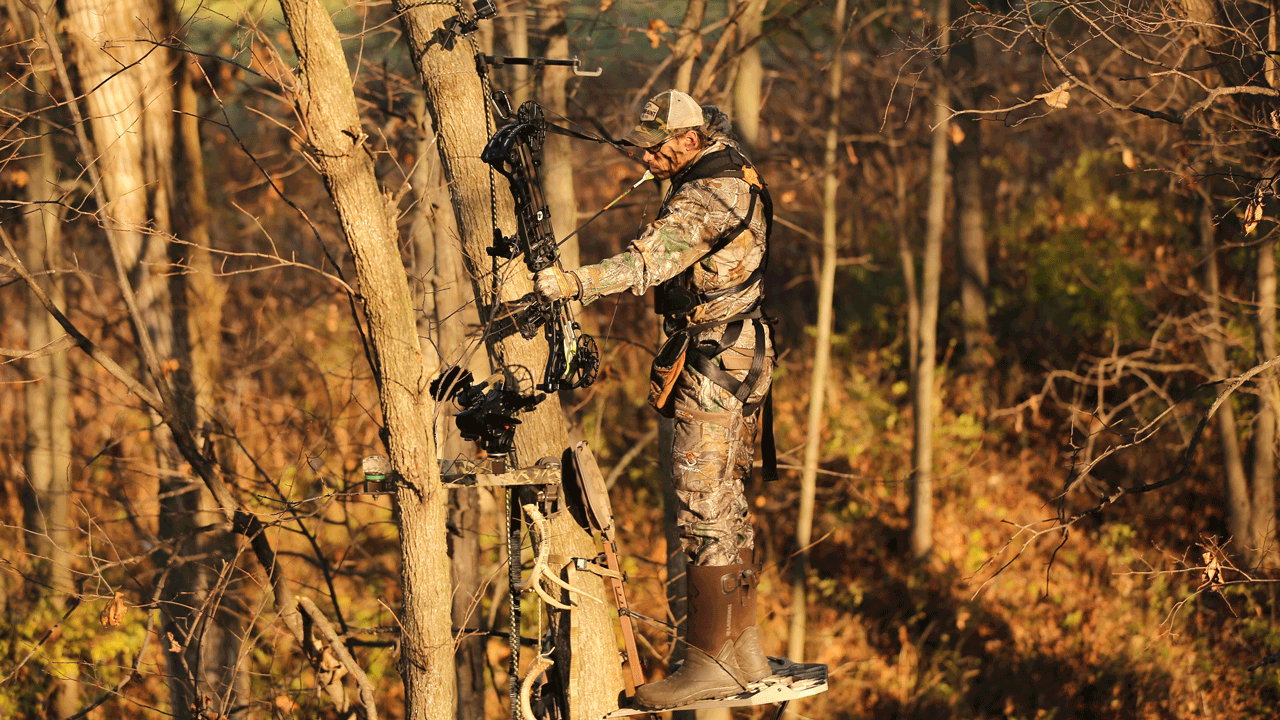
That day, I realized that many of the stand setups I annually encounter on public lands are asking for trouble. Fellow outdoor writer, Tony Peterson, and I recently discussed this on his Hunt For Real Podcast.
He, too, extensively hunts public lands and sees many stand setups hung low on bare trees without a backdrop to disguise a hunter’s outline.
The point being, if that young buck I just referenced busted me without any movement, there’s no way that I could’ve harvested him even if I’d wanted to. So, the low-hanging stands I’m talking about are trouble, especially if you’re targeting wiser mature bucks.
I’d trade cover for height any day. If that means sitting on the ground rather than hunting from a tree, I’ll do it. Position yourself where the best cover is to avoid being busted.
2. Trusting Trail Cameras Too Much
Trail cameras have revolutionized the way we hunt. We can learn what deer are in our hunting areas and some of their tendencies. But, did you ever consider that what your camera uncovers doesn’t encompass everything happening in your hunting area?
I mean, your trail camera can’t possibly cover every possible spot around your stand where a shot opportunity could present itself. Likewise, it doesn’t inform you what’s happening 25 yards away from your stand or farther.
How many bucks are cruising through 60 yards away that you could possibly grunt within bow range … if you were in your stand?
Trail cameras are invaluable, but they can also be a bowhunter’s downfall if relied upon to heavily. Sometimes, you just have to go hunting.
Almost all of the nice bucks I’ve taken were ones I didn’t know existed, and I got them because I didn’t rely too much on trail cameras. Especially during the rut, deer movement can change daily, but you must be on stand to experience it.
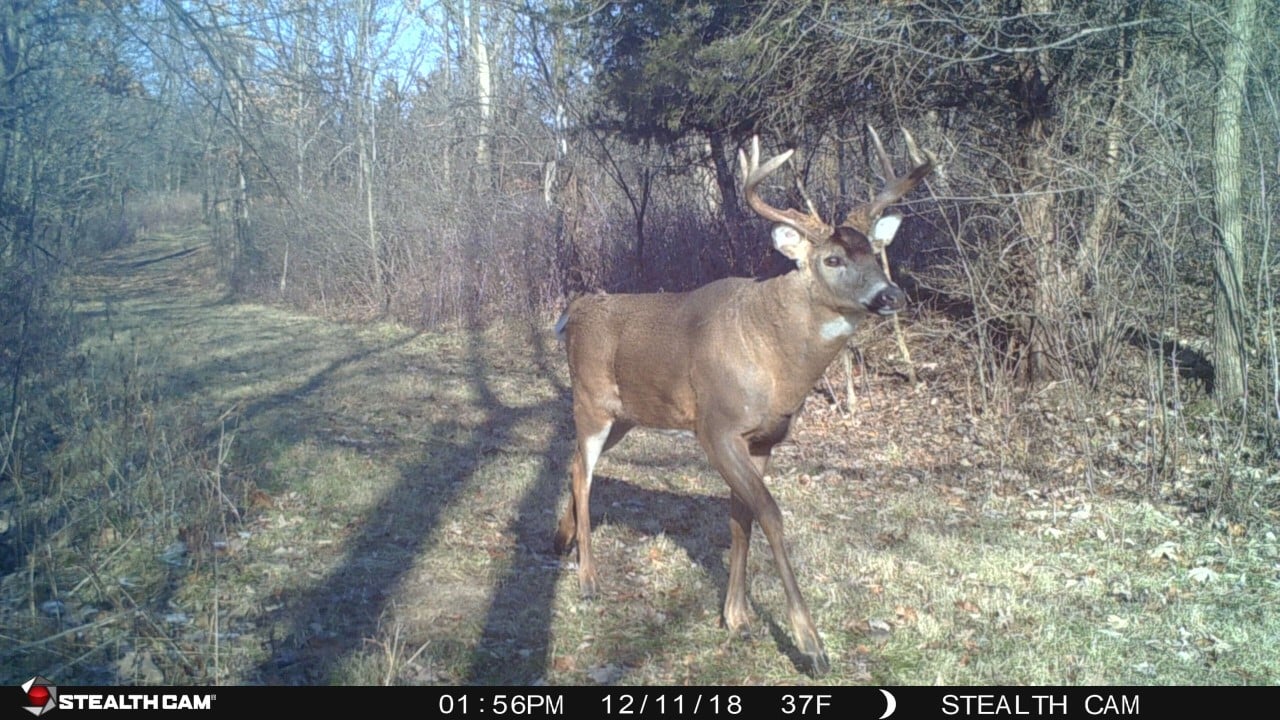
3. Not Shooting Your Broadheads Before Hunting
This one should go without saying. However, broadhead performance was the number-one complaint my family and I received from customers when we used to own an archery pro shop.
We’d ask if the customer had studied the instructions on the package as to how to properly assemble and use the broadhead. We’d also ask if they practiced with them prior to hunting to make sure they flew the same as field points. Many skipped both steps.
Confidence is irreplaceable when bowhunting, and nothing instills doubt like screwing on a broadhead shaped much differently than your field points and going hunting without first taking some shots.
Do yourself and the game you hunt a favor and learn how to properly use your broadheads, and then practice with them. If they fly differently, have your bow tuned at a pro shop, or adjust your sights for the broadheads if you’re in a pinch.
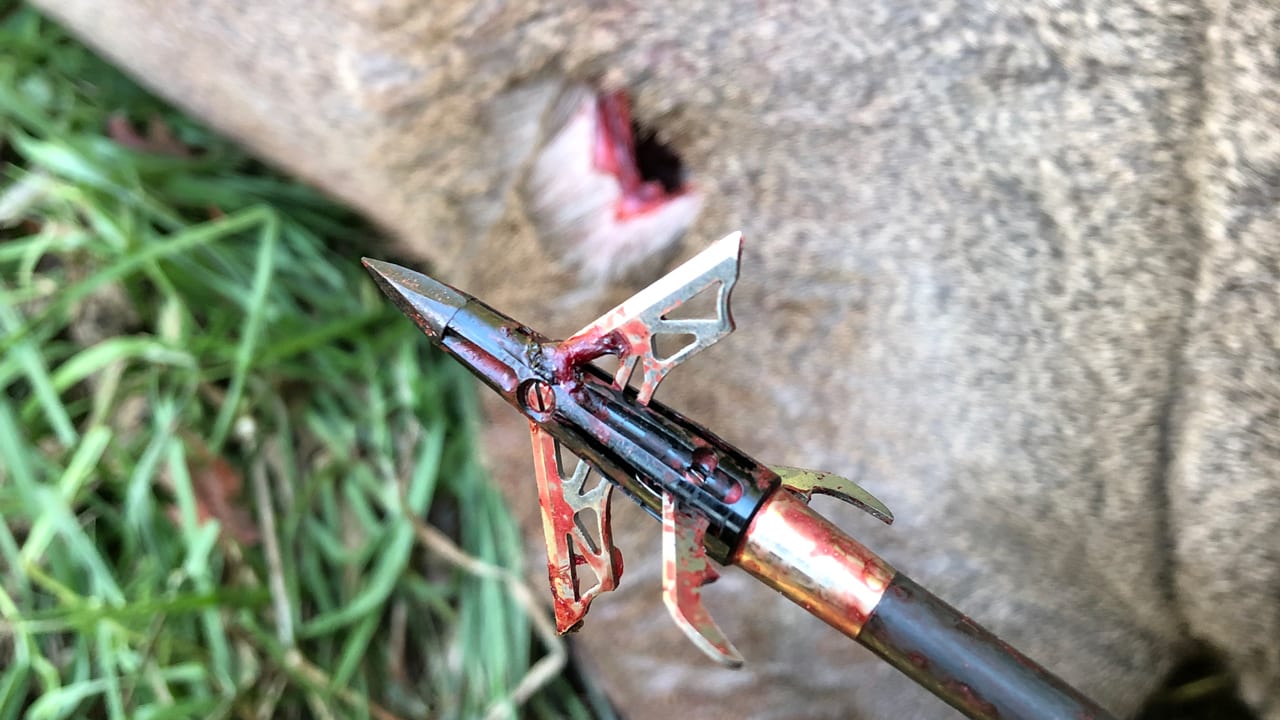
4. Failing to Practice With Hunting Apparel
If you only practice in a short-sleeve and some jeans in your backyard, how will you know if you can shoot the same way when you dress up for a chilly November hunt from a treestand? You won’t.
Bowstring-to-sleeve slap can toss your arrow far off course. I once had it happen on a 10-yard shot on a dandy North Dakota buck, and a terrible shot resulted. I recovered the buck, but was very dissatisfied with my hit.
If you find that it happens when you practice with your hunting apparel, either try an armguard that shrinks sleeve bulk, and/or consider shortening your draw length just a bit.
Shooting with gloves —yes, even thin ones — can affect how you grip the bow. You could easily torque it left or right without even knowing it.
Also, gloves with covered fingertips inhibit you from feeling your finger or thumb on the release trigger. Both dilemmas can cause poor shooting, so address them in the backyard well before your hunt.
5. Texting or Playing Games Instead of Watching for Deer
Ever feel like your hunting area is dead? We’ve all been there, and it becomes so tempting to pass time by pulling out your phone. However, remember that some of the most tremendous deer have been harvested at odd times during the day when hunters least expected such monarchs to show.
I’ve never missed a chance at a big buck, but I’ve certainly had deer sneak up on me while reading articles or scrolling newsfeeds.
Don’t let a big buck catch you off guard this season. Glance at your phone periodically, yes, but don’t hover over the screen and forget what’s happening around you.
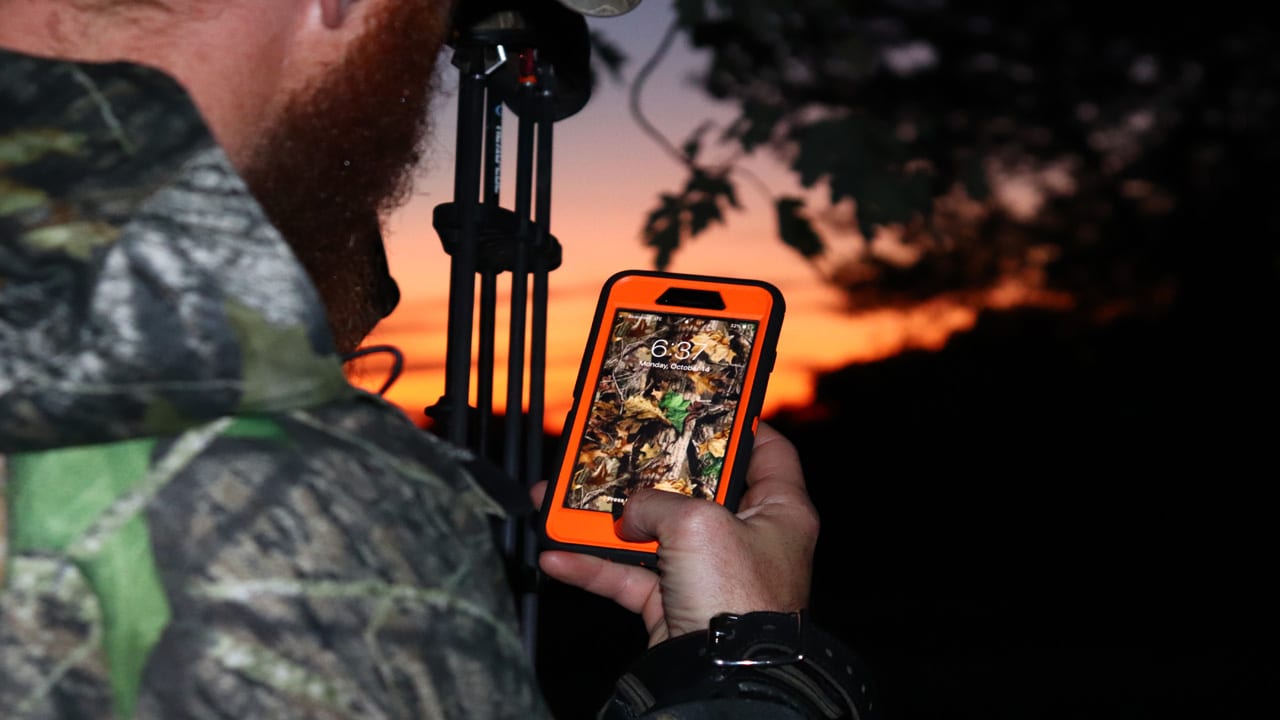
6. Walking Through Bedding Areas to Reach Stands
This one is easy to do. Scores of hunters find no-brainer stand locations, but then they forget to consider access and how it will impact deer movement at the stand location itself.
Few things can ruin a hunt as quickly as walking through a nearby bedding area and busting out most of the deer that would otherwise have filtered through your stand location. Choose access routes wisely, or you could blow your hunt before it begins.
Conclusion
There are many variables in the hunting game that keep us from punching a tag each year. Some are beyond our control, while others are areas that we can address and do better with.
The items mentioned above are all mistakes that are easy to avoid. It simply requires a little planning and preparation on our part on the front end. Take the time to make it happen this season!

 By
By 